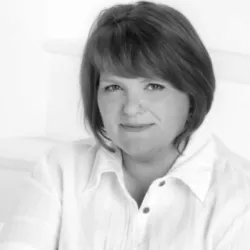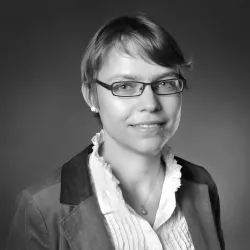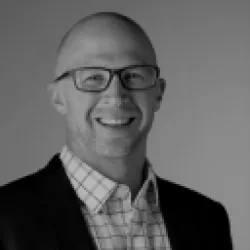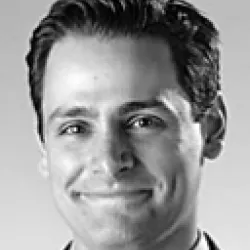Going Global: Scholars Changing the Game at International Institutions
From the Aga Khan University in Karachi to the United Nations in New York, four alumni scholars working in international institutions reflect on how their experience at the Pierre Elliott Trudeau Foundation helped shape their trajectory.
“During my studies, the Pierre Elliott Trudeau Foundation was one of the only environments, if not the only environment, that valued the fact that I am an interdisciplinary thinker,” says Rosalind Raddatz, 2010 scholar speaking from Nairobi, Kenya. “Over and over, academia pushed me to specialize. The political scientists said that my work was too ethnographic; the philosophy department said that I drew too much on political science. But my Foundation scholarship legitimized my approach, and that’s the approach that the Aga Khan University was looking for when it appointed me director of the provost’s office with 20 percent of my time for academic research.”
Rosalind had only been on the job for three weeks when we spoke to her. She is aware that managing the academic program planning and the budget for a university with campuses in Pakistan, Afghanistan, East Africa, and the United Kingdom is not for everyone. “I’ve always been somewhat of an outlier,” she explains. “I need a certain degree of risk; I need to feel that one day is not like the rest; I need to feel like I’m making a difference. It’s true, though, that the decision wasn’t easy, particularly as my family and friends wanted me to accept a senior position at Global Affairs Canada instead. But I reached out to two Foundation members – John Sims, 2012 mentor, and Pierre-Gerlier Forrest, the Foundation’s former president – and their thoughtful, arm’s-length analysis of my choices steadied my decision. I feel deeply that this is the right choice.”
Katrin Wittig, 2012 scholar, resonates with Rosalind’s need to make a difference. “Many of the Foundation’s scholars are like me: they have two souls,” says Katrin. “At heart, I am a researcher. But I have also always wanted to be a change agent. When I became a Foundation scholar in 2012, I joined an amazing community of brilliant people wanting to make a difference. It changed my life.”
At present, Katrin works as associate political affairs officer with the United Nations Mediation Support Unit in New York City. She describes it as her dream job. “2017 was an extremely difficult year geopolitically,” she says, “but for me, personally, it was different. I finished my PhD, I paid my debts, and I found meaningful work. Would I have landed here on my own? I don’t think so. My Foundation mentor, Marie-Lucie Morin, coached and supported me from the beginning, and Marie-Lucie is still in my life today. I was also sustained by countless conversations with other scholars, mentors, and fellows – conversations that challenged my thinking and exposed me to different disciplines.”
That said, Katrin has words of caution. “It’s true that sometimes at the Foundation, one gets the feeling of preaching to the converted,” she notes. “If I had one recommendation for the Foundation, it would be to find ways more openly to challenge groupthink. But in my case, the experience of being supported helped me persist even as the countries I studied (Burundi, Rwanda, and the Democratic Republic of Congo) became harder and harder to work in.”
For Brent Loken, 2011 scholar, the Foundation’s greatest contribution to his trajectory wasn’t a community of support. It was exposure to difference.
“I flew to Montréal for my scholarship interview from the Island of Borneo,” Brent recalls. “At the time, I was devoted to small-scale community development, arresting deforestation, and protecting orangutans. I loved working at the local level, living in villages with farmers and community groups. But each time I came back to Canada for a Foundation event, the Foundation exposed me to political and business leaders – to the movers and shakers of the world, the people who weigh in on large global decisions. And I started to realize that to create real change at the needed pace – over decades, not centuries – I needed to integrate larger political arenas: national policymaking, national and international corporations.”
Brent says, “To be honest, I didn’t enjoy leaving the jungles of Borneo and putting on a suit. At first, attending events with heads of industry and government felt uncomfortable and a bit unnecessary. But being pushed outside of my comfort zone helped me to understand the importance of this exposure. If I could convince one large business to change how it used an environmentally unsustainable product or persuade one member of government to change a policy, I could accomplish more, faster. It was eye-opening.”
As a director at EAT, an Oslo-based international organization, Brent now works closely with businesses and is encouraged at their level of ambition. “Condemning big business as evil doesn’t help,” he concludes. “Business helped lead the way on the Paris Accords, and entreprises can often move much faster on healthy and sustainable foods than governments or consumers. EAT gets that: working here, I hope to collaborate with business, governments, civil society, and academics to make healthy and sustainable diets a reality for everyone on this planet.”
One area of improvement he sees for the Foundation is to turn the ideas generated at Foundation events into action. “So many great minds and powerful individuals are at these meetings: collectively, we could create real change if we directed our energy into solving real-world problems. We could, for example, help develop tangible ways to achieve the UN’s Sustainable Development Goals or the Paris Climate Agreement.”
Brent’s trajectory over the course of his scholarship changed more than did the trajectory of Simon Collard-Wexler, 2009 scholar and first secretary for political affairs at the Permanent Mission of Canada to the United Nations in New York. Simon was already working at Global Affairs Canada when he took leave to study for a doctorate, and he returned to the department after he graduated. For Simon, the Foundation’s biggest contribution has been the breadth and depth of its network.
“Last November, I worked intensively on the organization of an international conference on peacekeeping in Vancouver,” says Simon by way of example. “My years at a Foundation scholar showed me that conferences like this are most productive when they are interdisciplinary. All those years at Foundation conferences and events, exchanging perspectives in hallways and over meals – I still call on people I developed relationships with during my time as a scholar: they are all brilliant and they are all working in very different areas.”
At the same time, Simon would like to see the Foundation provoke more debate. “Panels at Foundation conferences should systematically engage in tough questions and call on a variety of positions, no matter how unpopular,” he recommends. “The risk of the echo chamber is real.”
The last word goes to Rosalind. “I’ve noticed that excellence in business and academia do not necessarily award kindness or ethical behaviour,” she says. “But somehow, kindness is an unspoken value of the Foundation. The Foundation values excellence, too, of course. But it also respects difference, enough to make room for dialogue. I thrived in that environment, and I recognized the same values in the Aga Khan University, halfway across the world. Places of genuine dialogue are not always easy to achieve. But the Foundation proves that they are possible.”
23 February 2018





